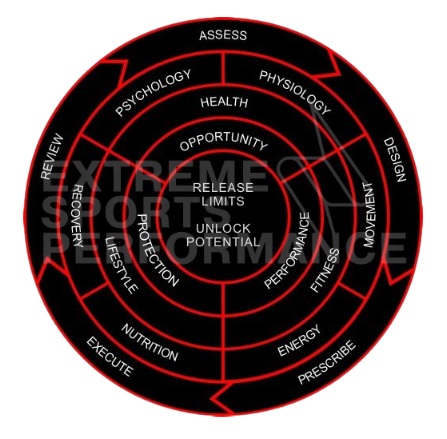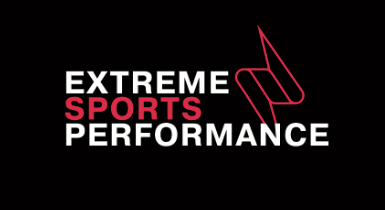Extreme Sports Performance
Key Benefits Of Sports Performance Training For Waterskiers & Wakeboarders

Physical Fitness & Performance Enhancement
Specialised strength and conditioning programs develop the specific muscular endurance needed for extended water sessions. This training improves core stability and lower body power essential for handling impact and maintaining control. Athletes experience improved balance, coordination, and proprioception specific to the demands of water sports. The result is longer, more enjoyable days on the water with reduced fatigue and better overall performance.
Injury Prevention & Longevity
Waterskiing and wakeboarding place unique demands on the body—particularly the shoulders, lower back, and knees. Preventative training addresses these sport-specific vulnerabilities through targeted stability exercises, mobility work, and corrective training. This approach not only reduces injury occurrence but extends athletes' longevity in their sport. For competitive athletes, this means more consistent training with fewer setbacks, while recreational participants benefit from pain-free enjoyment throughout their sporting lives.
Potential Negative Outcomes Without Proper Training
Neglecting specialised training creates significant risks for water sport enthusiasts. Without adequate physical preparation, athletes commonly experience premature fatigue leading to poor technique and increased injury risk. Muscle imbalances develop over time, particularly in the shoulders, hips, and core, creating compensatory movement patterns that eventually lead to overuse injuries and chronic pain. Nutritional deficiencies result in inconsistent energy levels, poor recovery, and diminished performance. For competitive athletes, this translates to plateaued progression and underperformance; recreational participants often experience shortened seasons due to injuries and decreased enjoyment as physical limitations prevent skill advancement. Most concerning is the dramatically increased risk of acute injuries like ACL tears, shoulder dislocations, and lower back injuries—all of which can lead to prolonged time away from the sport or even permanent participation limitations.
Mental Health & Confidence
These watersports already offer tremendous mental health benefits through connection with nature and the flow state athletes experience. Adding structured training amplifies these benefits by building confidence through progressive skill development. When athletes know their bodies are prepared for the demands of their sport, anxiety decreases and they're more willing to push their boundaries safely. This psychological resilience translates to improved focus during competition and greater enjoyment during recreational sessions.
Nutrition & Energy Management
Proper nutritional guidance prevents the mid-session energy crashes common among recreational participants. Competitive athletes benefit from periodized nutrition plans that optimize recovery between training sessions and performance during competitions. Hydration strategies specific to water sports help maintain performance in challenging conditions. This creates sustainable energy management that supports both athletic goals and overall wellbeing.
Lifestyle & Long-term Wellbeing
The holistic approach connecting physical training, mental preparation, nutrition, and injury prevention creates a virtuous cycle of improvement. Better physical preparation enables more successful skill acquisition, which builds confidence, driving further commitment to training. This leads to healthier lifestyle choices outside of water sports as well, including improved sleep quality, stress management, and overall physical activity levels. The comprehensive approach fosters lifelong participation and enjoyment of these exhilarating water sports.




